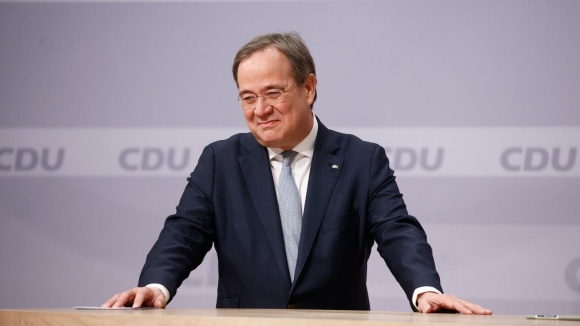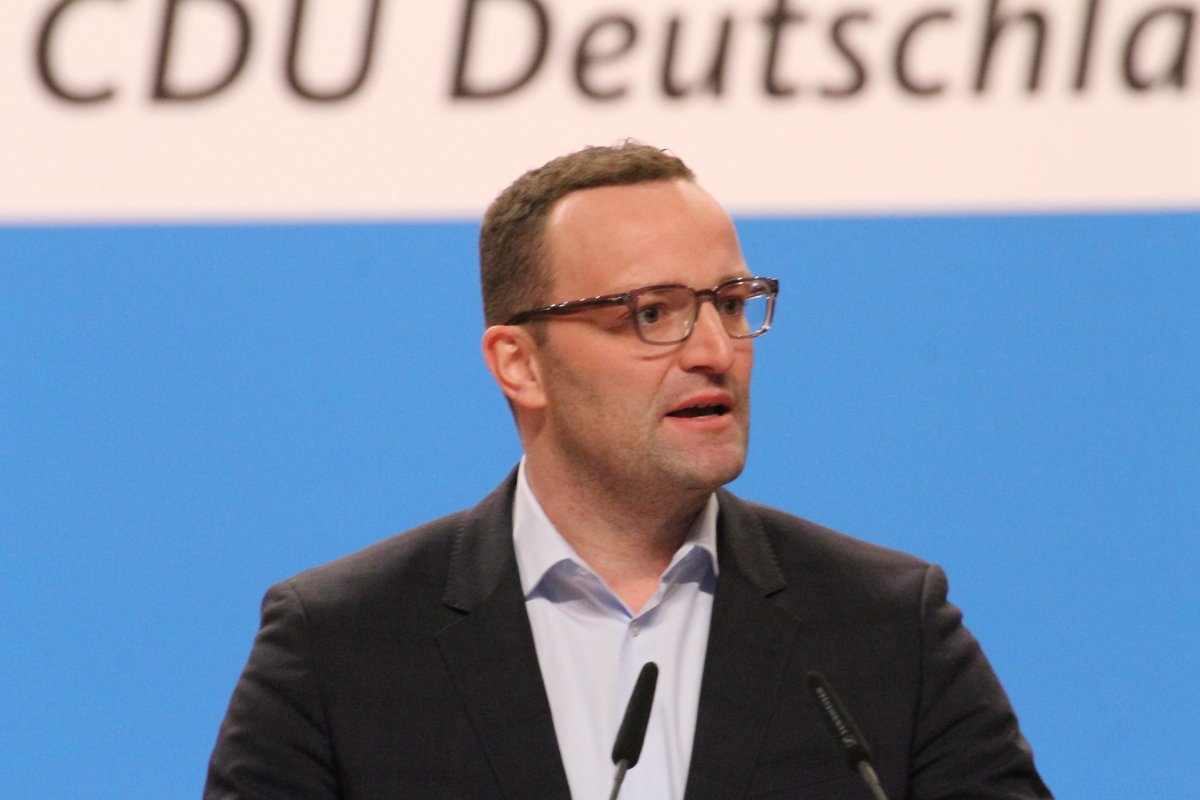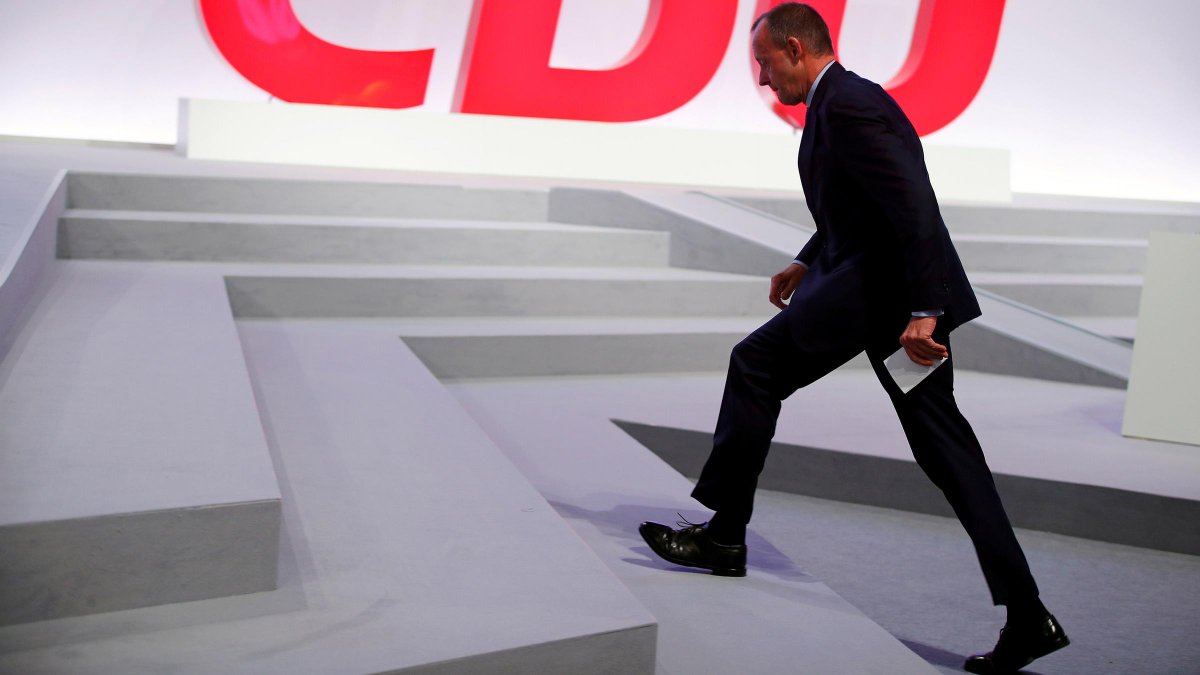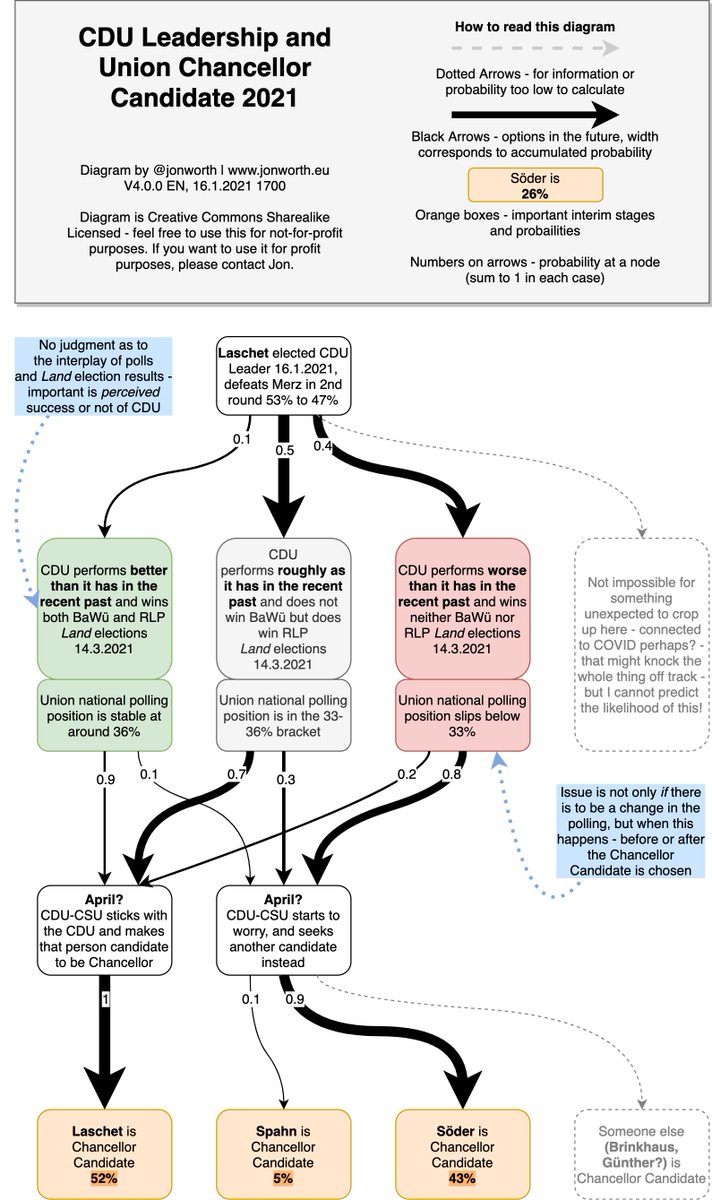
OK then.
So the new CDU Party Leader #CDUvorsitz is known - it's Armin Laschet.
This 🧵 will explain why he won, explain what he means, and outline what happens next.
1/20
So the new CDU Party Leader #CDUvorsitz is known - it's Armin Laschet.
This 🧵 will explain why he won, explain what he means, and outline what happens next.
1/20

At the CDU's party congress today, the three candidates - Laschet, Friedrich Merz & Norbert Röttgen - gave 15 min speeches
That was the first signal of what was to come... Today we saw the very best of Laschet - playing the reliable, careful person, not heavy on detail
2/20
That was the first signal of what was to come... Today we saw the very best of Laschet - playing the reliable, careful person, not heavy on detail
2/20
Merz by contrast gave an ill focused speech, and did not make a single reference to Merkel or AKK, the outgoing party leader. He seems to have learned nothing
Röttgen, long the outsider, gave a speech with a lot more detail - especially on green issues and the future
3/20
Röttgen, long the outsider, gave a speech with a lot more detail - especially on green issues and the future
3/20
1001 Delegates - these were the results
Round 1 🗳
Merz 385
Laschet 380
Röttgen 224
Round 2 🗳
Laschet 521
Merz 466
About 1/3 of Röttgen's vote went to Merz, 2/3 to Laschet
4/20
Round 1 🗳
Merz 385
Laschet 380
Röttgen 224
Round 2 🗳
Laschet 521
Merz 466
About 1/3 of Röttgen's vote went to Merz, 2/3 to Laschet
4/20
It's important to emphasise how absolutely *average* Laschet is in the CDU. If you were to imagine your archetypal CDU politician it would be him. Not to edgy, not too sharp, not too radical, not too conservative, not too dashing... it would be him
5/20
5/20
The course Laschet will pursue will be continuity-Merkel, but without Merkel's *skill* to know when to triangulate or wilfully not take clear positions
He'll not take clear positions because he does not have any
But with his speech today: he's well advised and not stupid
6/20
He'll not take clear positions because he does not have any
But with his speech today: he's well advised and not stupid
6/20
A word about the futures of the defeated candidates...
Merz's comparatively strong showing underlines there is a good chunk of the CDU more conservative than centrist, and they're not going away. Laschet is going to have to find some way to keep them onside
7/20
Merz's comparatively strong showing underlines there is a good chunk of the CDU more conservative than centrist, and they're not going away. Laschet is going to have to find some way to keep them onside
7/20
The way Röttgen carefully built his campaign, and the themes he emphasised throughout, won him more support than was expected at the start. I'm told there's animosity between him and Laschet, but if that's overcome he ought to be a future Foreign Minister
8/20
8/20
But now what for Laschet?
He's still Prime Minister of Nordrhein-Westfalen, and will stay in that role at least a while longer
His first party political test is the Land elections in Baden-Württemberg and Rheinland-Pfalz 14 March
9/20
He's still Prime Minister of Nordrhein-Westfalen, and will stay in that role at least a while longer
His first party political test is the Land elections in Baden-Württemberg and Rheinland-Pfalz 14 March
9/20
How does the CDU do in those elections?
At the moment in looks like the Greens will still win BaWü, but the CDU might be the largest party in RLP - more because the SPD are suffering than because of any strength of the CDU
10/20
At the moment in looks like the Greens will still win BaWü, but the CDU might be the largest party in RLP - more because the SPD are suffering than because of any strength of the CDU
10/20
More widely, how is the CDU going to do in the national polls? 35% is the sort of baseline for the party - were the numbers to nosedive below that, Laschet has a problem. Stick with those numbers and he is going to be fine
11/20
11/20
Why does this matter?
The CDU Party Leader does not necessarily become the CDU-CSU Chancellor Candidate for the Bundestag election scheduled for 26 Sept - that person can come from the CDU's Bavarian sister party, the CSU
12/20
The CDU Party Leader does not necessarily become the CDU-CSU Chancellor Candidate for the Bundestag election scheduled for 26 Sept - that person can come from the CDU's Bavarian sister party, the CSU
12/20
And the CSU leader, Markus Söder, might be just the person to step up should it look like Laschet is struggling...
A decision on who the candidate will be is expected *after* the BaWü and RLP elections - in April probably
13/20
A decision on who the candidate will be is expected *after* the BaWü and RLP elections - in April probably
13/20

To put it bluntly: if by April the CDU looks to still be in good health, Laschet will likely be the Chancellor Candidate
If it's not, the CDU might realise hauling Söder from Munich would be a better call. Söder has a higher national standing than Laschet does just now
14/20
If it's not, the CDU might realise hauling Söder from Munich would be a better call. Söder has a higher national standing than Laschet does just now
14/20
If Laschet were to suffer, *and* Söder does not make the step from Bavaria to the federal level, then current health minister Jens Spahn could step in instead - but this is an outside chance in my view
15/20
15/20

Some people asked me if Merz could be Chancellor Candidate still - even though he narrowly lost to Laschet - but I think this is impossible
Merz has higher support among the CDU rank and file than among MdBs and the leadership - they'd not take Merz for the top job
16/20
Merz has higher support among the CDU rank and file than among MdBs and the leadership - they'd not take Merz for the top job
16/20
That leaves us then with 3 possible Chancellor Candidates for CDU-CSU - Laschet, Söder and Spahn
17/20
17/20
What about the election and possible coalitions?
Laschet is in a CDU-FDP coalition in Nordrhein-Westfalen, and a coalition with the FDP would not bother Söder or Spahn either, but CDU-CSU + FDP is unlikely to be enough for a majority...
18/20
Laschet is in a CDU-FDP coalition in Nordrhein-Westfalen, and a coalition with the FDP would not bother Söder or Spahn either, but CDU-CSU + FDP is unlikely to be enough for a majority...
18/20
A CDU-CSU + Green coalition is more likely route, and while it'd not be a walk in the park for the Greens to work with any of the 3 likely candidates (Laschet is the son of a coal miner for example!) it'd not be impossible either
Merz is out, so the path to ⚫️🟢 is open
19/xx
Merz is out, so the path to ⚫️🟢 is open
19/xx
There's a long way to go in the process to find Merkel's successor yet, but one thing is clear after today: there is not going to be a sharp turn to the right, because Friedrich Merz is not going to be the next Chancellor
20/20
20/20

• • •
Missing some Tweet in this thread? You can try to
force a refresh






